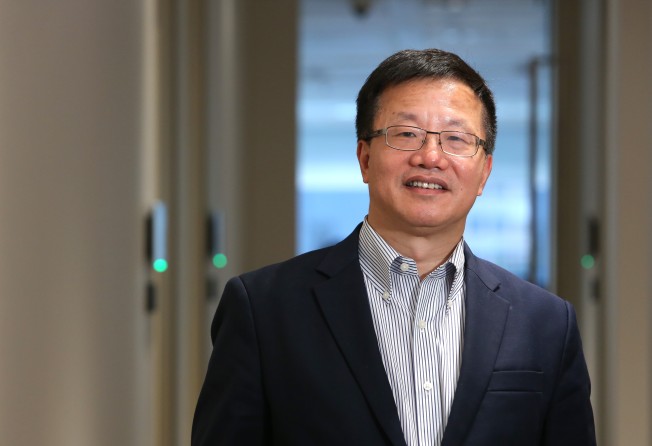Hong Kong listed Innovent Biologics believes it can help usher in a ‘game changer’ for drug prices in China
- Innovent Biologics, one of the first batch of firms listed in Hong Kong under the new listing regime, jumped 18.6 per cent to close at HK$16.58 in debut trade on Wednesday

Competition in China’s nascent market for a novel category of cutting edge cancer treatments is set to intensify, according to newly listed Innovent Biologics.
Chinese pharmaceutical companies will adopt a low price strategy on domestically-produced antibody cancer drugs, catering to millions of cancer patients who cannot afford expensive imports, said Michael Yu Dechao, co-founder and chairman of Innovent Biologics.
The development is expected to see an eventual reversal of the phenomenon of mainland patients travelling to Hong Kong to buy cheaper drugs, said Yu. In the future, he said even Hongkongers seeking access to cheaper medicines are likely to look for alternatives north of the border.
“Desperate mainland patients were estimated to have spent 1.2 billion yuan (US$172.2 million) last year to buy PD-1 antibody treatments by getting prescriptions from Hong Kong doctors,” he said. “In the future, this will reverse as Hong Kong people will go to the mainland to buy these drugs at cheaper prices.”
Innovent, one of the first batch of firms listed in Hong Kong under the new listing regime, jumped 18.6 per cent to close at HK$16.58 in debut trade on Wednesday.
PD-1 and PD-L1 drugs are antibodies that use the body’s own immune system to fight tumours, by preventing cancer cells from immune response evasion and enabling immune cells to more effectively identify and kill them.
In China, the world’s second-largest pharmaceuticals market, PD-1 treatments could grow from virtually nothing this year to US$5.8 billion in the next four years, and to US$12.1 billion by 2025, based on projections by industry consultant Frost and Sullivan.
Globally, six antibodies cancer treatments have been commercialised at an average annual cost to patients of US$150,000 to US$160,000, a price level unaffordable to most mainlanders, Yu said.
On the mainland, only two PD-1 products have been approved, both made by multinational firms. Such products are typically made in bioreactors that mimic bodily conditions needed for antibodies production.
US-based Bristol-Myers Squibb won approval to launch Opdivo, China’s first PD-1 product, in June. It can be used to treat multiple cancers, but so far China has only approved the drug for lung cancer treatment.
This was followed by Merck’s Keytruda, approved three months ago for treating metastatic skin cancer in China.
These two products are priced on the mainland at around US$80,000 for a year’s treatment, slightly more than half of what it costs in the US, Yu said. Annual treatment using Opdivo in Hong Kong would cost between US$100,000 to US$114,000, according to Yu.
Pent-up demand saw Optivo record first-day sales of some 50 million yuan and first-month sales of 170 million yuan in China, Yu said.
Together with US partner Eli Lilly, Innovent plans to launch Sintilimab in China – initially targeting Hodgkin’s lymphoma patients – upon receiving approval expected next year.
Innovent will price the drug lower than imported PD-1 rival products and is in advanced talks with the Chinese government on a plan to offer special discounts to patients from low income families.
At least 11 firms – domestic and multinationals – have applied to Chinese drug authorities for approval to launch PD-1 or PD-L1 drugs.
In three to five years, Yu expected mainland firms to dominate the domestic market for these drugs. Four local companies will likely account for four-fifths of total sales by domestic companies, he said.
Nomura analysts said in report earlier this year that they expect fierce competition to drive down prices and the market to fragment into tiers of products with varying efficacy and safety.
They said some mainland firms will lag in product quality due to less advanced antibody-manufacturing technology and impurity-treatment technology.
Yu said quality differentiation is the reason for his prediction that only four mainland firms will reflect such a large share of the PD-1 market.